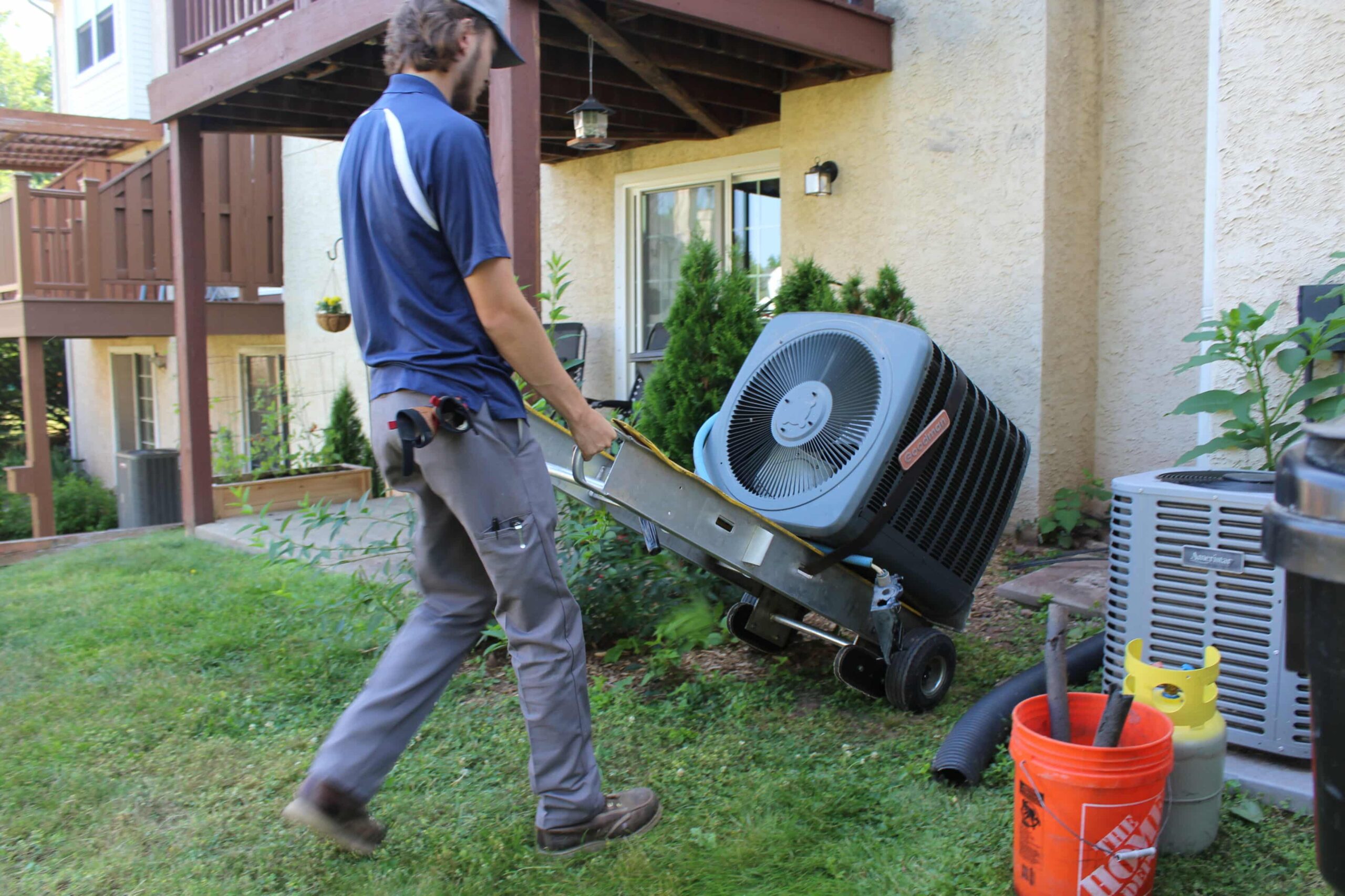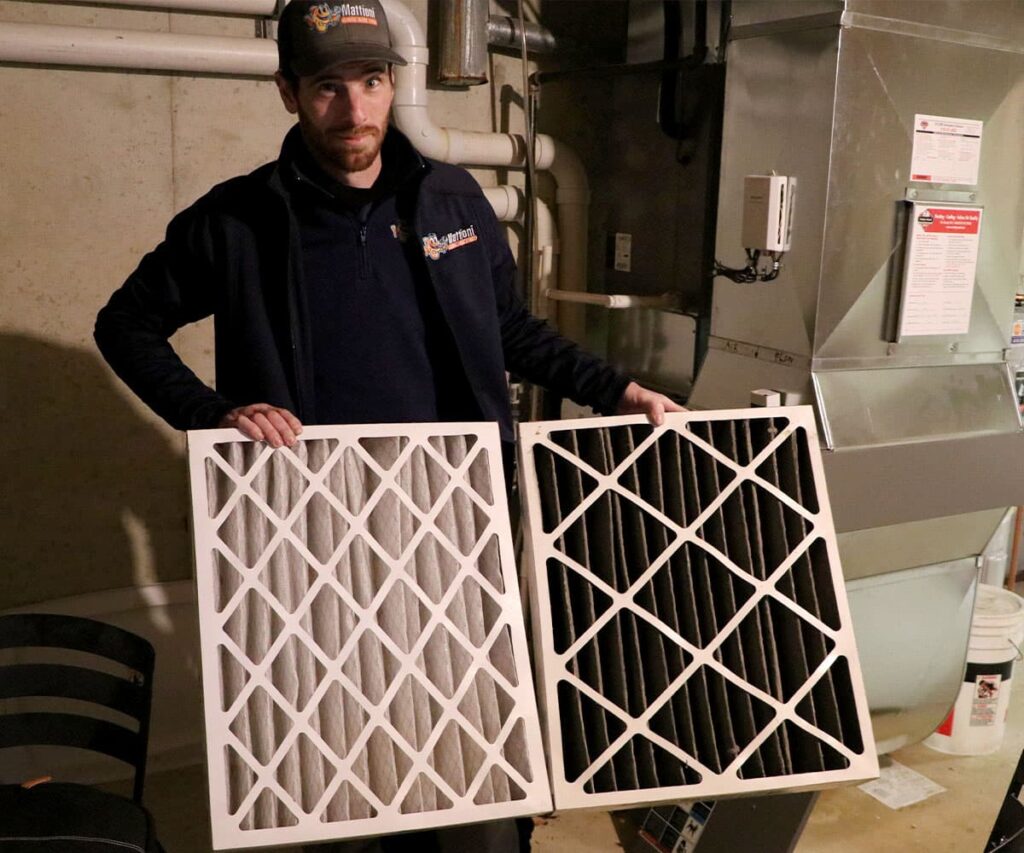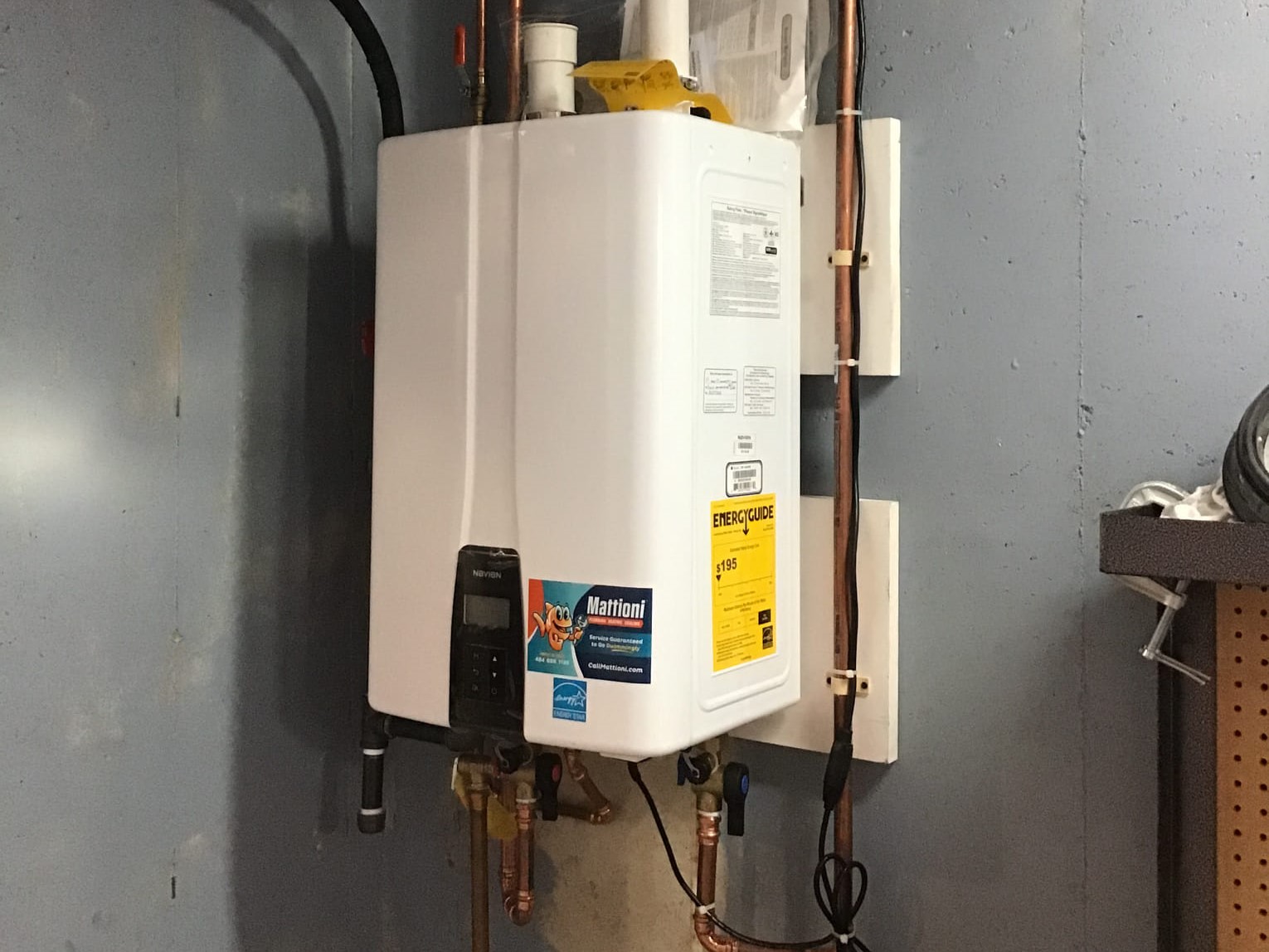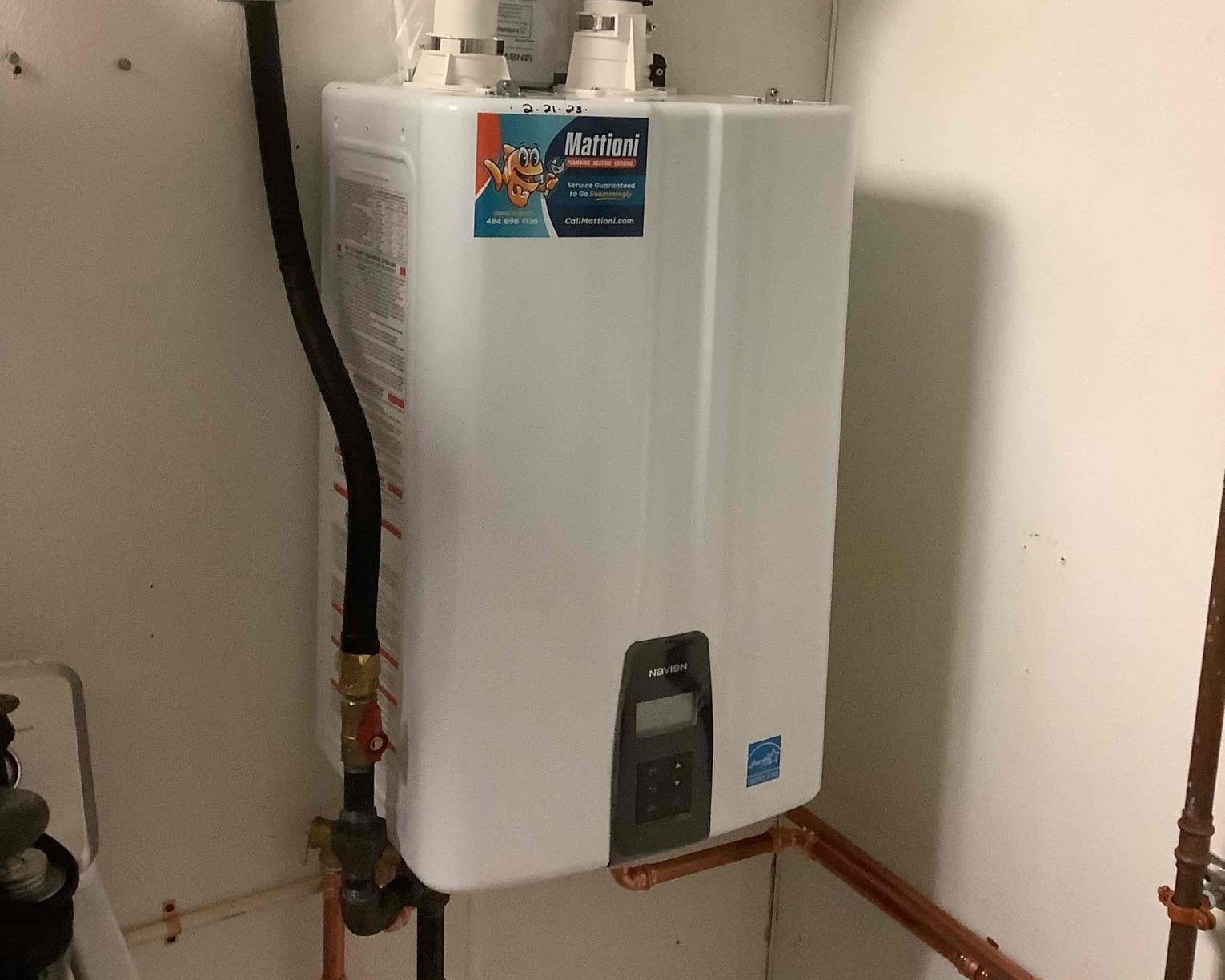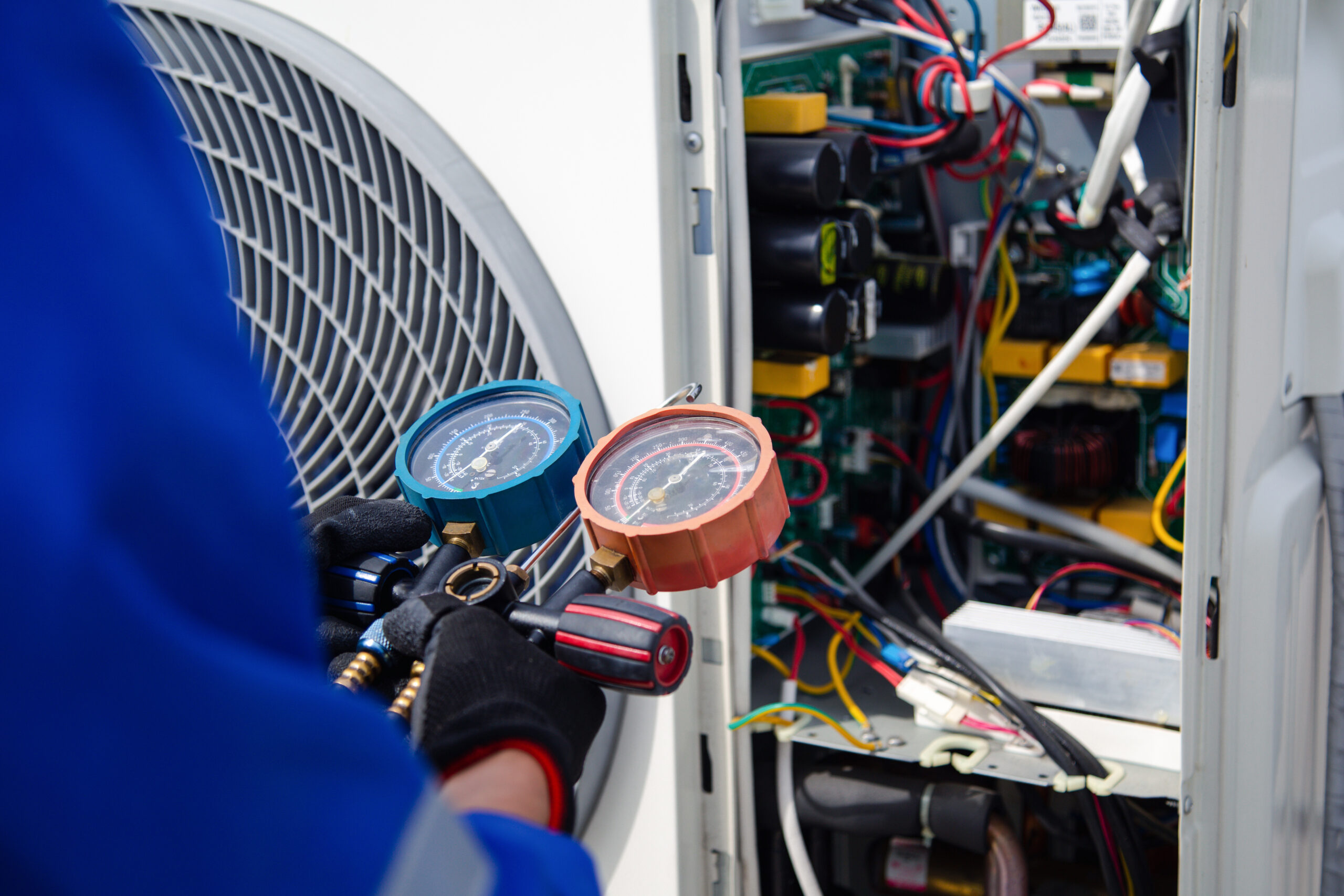|
Getting your Trinity Audio player ready...
|
Last Revised: 11/1/2024
Have you noticed that certain rooms in your home never quite feel comfortable? Or maybe your energy bills have slowly increased without an explanation? If this sounds like you, you’ve come to the right place.
Many homeowners put off replacing their HVAC equipment, hoping it’ll last “just a little longer.” But over time, the costs of maintaining an outdated unit can outweigh the price of a new, efficient one.
Nevertheless, it’s still a challenge to know when exactly the right time is to replace your HVAC system. Act too soon and you could be pulling the plug on a perfectly fine piece of equipment. But wait too long and you could find yourself in an HVAC emergency after your system fails.
The HVAC professionals at Mattioni get it (we’re homeowners too). And we’re here to help anyone confused about the timing of their heating or air conditioning system replacements.
Choosing the right time for your next HVAC unit can save you money, improve your home’s comfort, and even help the environment.
In this article, we’ll walk you through the five key signs that indicate it’s time to consider an upgrade. By the end, you’ll know how to spot key symptoms of an aging HVAC system. You’ll also know if replacement is the best option for your home.
Now, let’s look at the telltale signs that your heating or AC system might be ready to retire.
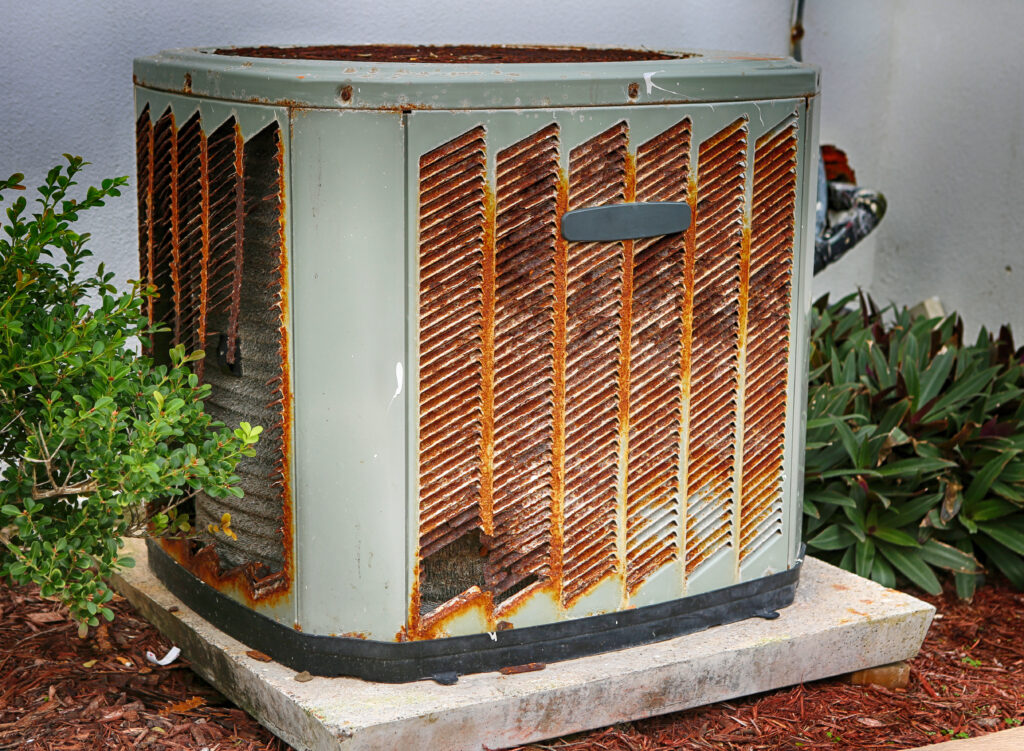
5 Signs That it May Be Time to Replace Your HVAC Equipment
1. The Age of the System
Now here’s a shocker – the age of your HVAC equipment is often the strongest indicator of when it might be time to consider a replacement.
Seems obvious, but it’s still worth mentioning because, in a newer unit, some system problems may indicate that a repair is needed, instead of a replacement. However, if it’s an older system that’s running into problems (and the warranty has expired) it’s much more likely to be a call for replacement instead of repair.
Here’s a quick timeline guide:
- Air Conditioners, Furnaces, and Heat Pumps (10-12 Years): After about a decade, these units start to show their age. Components like compressors and fans wear down, leading to more frequent repairs, higher energy bills, and less effective heating or cooling. Proactively replacing equipment around this time can restore comfort and save money.
- Mini Split Systems (10-15 Years): Mini splits often last a bit longer, thanks to fewer moving parts. But as they hit the 15-year mark, you’ll probably notice a drop in efficiency and reliability, making a new unit a smart choice.
- Boilers (15-20 Years): Boilers are built to last, often up to 20 years. But even they eventually lose efficiency and can’t keep up with modern standards, so if yours is nearing the 15-20 year range, replacement can offer peace of mind and better energy savings.
Simply put, as HVAC systems age, efficiency declines and repair costs start to add up. Upgrading to a new, energy-efficient system often saves more money in the long run—and keeps your home more comfortable.
If your system is hitting that 10+ year mark, it’s time to proactively keep a close eye on performance.
2. Unexplained Rising Energy Bills
If your energy bills are climbing inexplicably, it could be a sign that your heating or AC equipment is struggling to keep up. As these systems age, parts wear out and operate less efficiently (remember how important maintenance is), and they increasingly have to work harder and longer to heat or cool your home.
This extra effort means more energy is being used – and higher bills.
If your bills keep going up without any big changes in how you set your thermostat and your system is over 10 years old (and out of warranty), it’s likely time to start looking into replacement.
One great strategy is to check your year-over-year energy bills for any unexpected increases.
Getting ahead of the game and proactively installing a new system will do more than just bring your bills down, it’ll also keep your home more comfortable and help you avoid a potential heating or cooling emergency.
3. Frequent Repairs Start Adding Up
If your HVAC system needs to be repaired more than once every few years, it’s probably reached the end of its useful life.
Once the warranty’s up, every repair is money out of your pocket, and those costs can stack up quickly. Older systems tend to have recurring problems as parts wear out, and the more you spend fixing them, the closer you get to the cost of a brand-new unit.
Think of it as an aging car that has increasing repair shop costs: it might make sense to pay to keep it on the road up to a certain point, but eventually, it will be cheaper to purchase a new car.
If you’re tired of continually putting money into patching up your heating and AC equipment that’s close to the end of its life, think about the long-term advantages of investing in a replacement. It’ll bring you better performance, higher efficiency, and peace of mind.
4. Inconsistent Temperatures Throughout Your Home
While inconsistent temperatures might seem like an issue with insulation or the layout of the home, it’s another sign it might be time to replace your HVAC equipment. Uneven temperatures (like one room being warm while another is chilly) is often a canary in the coalmine that signals your system is wearing out.
When components lose efficiency or start to fail, it’s harder for the unit to keep up, especially during extremely hot or cold weather.
Upgrading to new heating or AC equipment can make a world of difference in eliminating those uncomfortable hot-and-cold spots.
You shouldn’t have to battle with your thermostat to combat temperature swings from room to room. If your system has is over 10 years old, a new one might be the solution you need for reliable, even comfort.
5. Unusual Noises or Smells
Unusual noises or strange smells coming from your HVAC system can be a sign that something serious is going wrong, and immediate action may be needed. If your system is older and running into any of the following symptoms, talk with your HVAC professional about replacement:
- A burning smell can mean that electrical components have worn out or are overheating. If you smell plastic burning, it could potentially be a fire hazard that needs quick attention.
- Similarly, a buzzing noise is likely an electrical problem that can be caused by a loose connection like a malfunctioning contactor or a circuit breaker issue.
- If you hear a non-stop rattling noise, it could mean that the outdoor unit’s condenser coil is clogged. Try cleaning this component to see if it addresses the noise or call a professional for an inspection.
While some noises or smells are signs of smaller issues that can be repaired, they’re often signs of an aging system that may continue to have problems. Replacing an older unit creating strange noises or smells with a more reliable one will help avoid frequent and costly fixes and restore peace and comfort to your home.
Tips on How to Maximize Your HVAC Equipment’s Lifespan
If you sit back and let your heating or AC system run without actively taking steps to upkeep its performance, then it’ll most likely experience a lifespan that’s potentially years shorter than it might otherwise see.
Here are some relatively simple steps you can take to prolong the life expectancy of your heating and cooling equipment.
1. Maintenance, Maintenance, Maintenance
A little bit of TLC goes a long way with your heating and AC equipment. Simple things like replacing filters and coils help to alleviate the overall workload on the system, so parts like the compressor don’t wear out prematurely.
Maintenance can stop dust buildup, leaks, and loose wires from causing bigger issues (like overheating), which can potentially lead to breakdowns far earlier than they should happen.
A tune-up appointment with an HVAC professional includes several housekeeping tasks that prevent a lot of wear and tear.
In short, regular maintenance is the most vital thing you can do to keep your HVAC running efficiently and extend its life, saving you from costly surprises down the road.
2. Keep the Area Around Your Unit Clear
Clearing at least two feet of space around your outdoor unit prevents plants, debris, or objects from blocking airflow. Good airflow allows the system to heat or cool efficiently, reducing strain on the components and preventing overheating, which helps extend its lifespan.

3. Use a Programmable Thermostat
A programmable thermostat automatically adjusts the temperature based on your schedule, so your HVAC unit doesn’t work harder than necessary. By reducing strain during times when heating or cooling isn’t needed, you minimize wear and tear on the system, which can help it last longer.
4. Ensure Your Ductwork is Sealed and Your Home is Properly Insulated
Sealed ductwork and good insulation prevent air leaks, meaning your system doesn’t have to work as hard to maintain consistent temperatures. When air stays where it’s supposed to, your heating and AC equipment runs more efficiently and experiences less strain, which can add years to its lifespan.
The Environmental and Cost Benefits of Upgrading
Upgrading to a new HVAC system is great for both the environment and your wallet:
1. Good for the Environment: New HVAC systems operate at high efficiency levels, which means they emit fewer greenhouse gases and have a smaller carbon footprint. Many also come with eco-friendly refrigerants, which are gentler on the environment compared to older types that have been phased out.
2. Saves You Money: Though a new system is an upfront investment, the energy savings can make a real difference in your monthly bills. Features like variable-speed motors and smart thermostats let the system work only as hard as it needs to, keeping costs down. Plus, there are often rebates and tax incentives for switching to energy-efficient models, which can help with the initial cost.

Picking the Perfect Time for Your Heating or Air Conditioning Upgrade
As your HVAC system ages, knowing when to replace it can save you a lot of stress, money, and discomfort. From rising energy bills to uneven temperatures and unusual noises, each of these signs points to the bigger picture of your system’s overall health.
If you’ve experienced any of the five issues covered in this article, it might be time to reach out to an HVAC professional to discuss your options.
We recommend becoming informed before making a purchase decision, so feel free to use our Learning Center as a resource. We also recommend speaking to as many professional installation companies as you need for you to feel confident in your decision, before scheduling an installation. To get you started, here’s our number: (610) 400-8510. Ready to schedule a consultation now? Book your appointment here.
With over 76 years in business, Mattioni’s team can help you assess your system’s condition, provide honest recommendations, and guide you through options for upgrading to an energy-efficient model.
A new HVAC system is an investment in your home’s comfort, efficiency, and peace of mind. So, if your system is showing signs that it’s ready to retire, don’t wait for an emergency – be proactive and take action to secure your home’s comfort.

